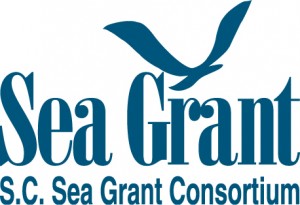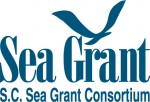
 Earlier this week, South Carolina governor and rising tea party star Nikki Haley cut all state funding for the South Carolina Sea Grant Consortium. Sea Grant programs are a critical part of the United States’ marine and coastal research network. In addition to providing millions of dollars in scientific grants, the national Sea Grant college program (of which the South Carolina consortium is a member) connects scientists, educators, and citizens with the goal of “helping citizens utilize scientific information to support a vibrant economy while ensuring ecological sustainability” (source). In total, there are 32 Sea Grant programs throughout the country, which help coordinate research and strategic goals with experts in every state that borders an ocean or one of the Great Lakes.
Earlier this week, South Carolina governor and rising tea party star Nikki Haley cut all state funding for the South Carolina Sea Grant Consortium. Sea Grant programs are a critical part of the United States’ marine and coastal research network. In addition to providing millions of dollars in scientific grants, the national Sea Grant college program (of which the South Carolina consortium is a member) connects scientists, educators, and citizens with the goal of “helping citizens utilize scientific information to support a vibrant economy while ensuring ecological sustainability” (source). In total, there are 32 Sea Grant programs throughout the country, which help coordinate research and strategic goals with experts in every state that borders an ocean or one of the Great Lakes.
Despite Governor Haley’s claims, the Sea Grant Consortium is basically the opposite of big government and wasteful government spending. Though they are administered centrally by the National Oceanic and Atmospheric Administration, each Sea Grant program is independently run. According to Executive Director Rick DeVoe,
“It is important to note that the programs we undertake are developed as a result of the input we solicit from our stakeholders along the coast and inland – businesses and organizations, NGOs, and people who depend on coastal and marine resources for their livelihoods, their pleasure and their quality of life….The S.C. Sea Grant Consortium generates and applies science-based information on issues and opportunities to enhance the practical use and conservation of coastal and marine resources to foster a sustainable economy and environment in the state and region.”
The state contribution pays mostly for local staff and facilities that are used to apply for and distribute grants. Since much of the funding for grants they distribute comes from the Federal government, the entire state-contributed budget for the South Carolina Sea Grant Consortium is a little over $428, 000 out of a total state budget of around $21,000,000,000, less than the total salaries of the Governor’s personal staff. Cutting this critical program thus results in a 0.002% reduction in state government spending, right after the state of South Carolina got more than $1.4 billion in increased tax revenue as a result of the economy improving.
